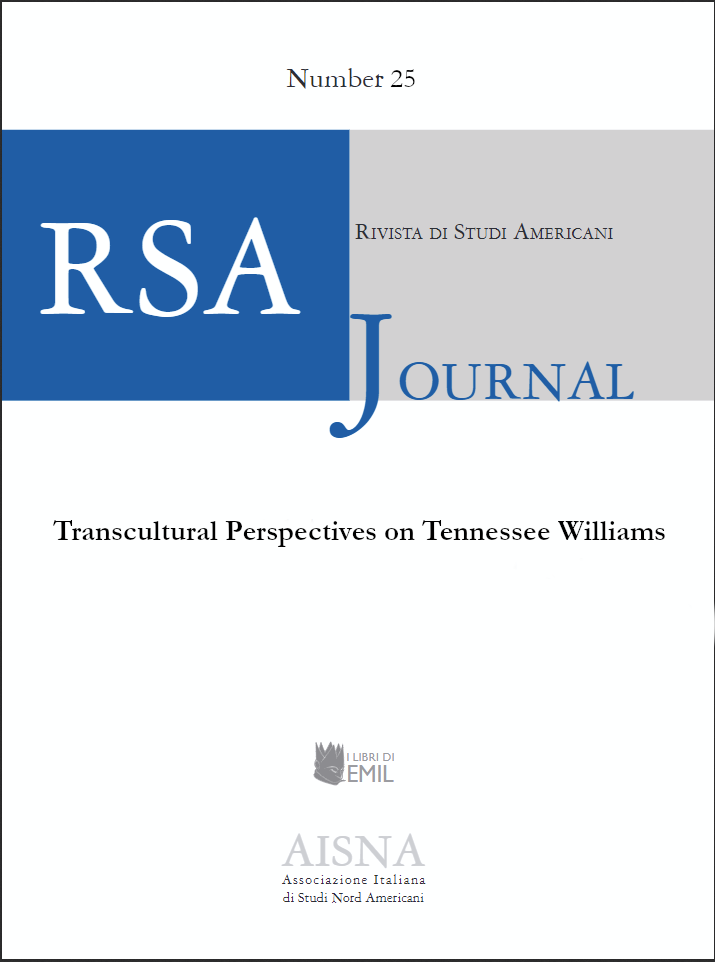Denied Citizenry and the Postnational Imaginary
Arab-American and Muslim-American Literary Responses to 9/11
DOI:
https://doi.org/10.13135/1592-4467/8617Keywords:
Arab-Americans, Muslim-Americans, 9/11, denied citizenry, postnational imaginaryAbstract
This paper documents the emergence of a new sub-genre of U.S. literature, encompassing narratives focusing on the social and cultural backlash on Arabs and Muslims in the U.S. in the wake of the 9/11 terrorist attacks. This body of literature, produced by a new generation of authors of Middle Eastern descent writing in as well as outside the U.S., engages the problematic construction of the Middle Eastern (often summarily stereotyped as “Arab,” “Islamic” or “Muslim”) in the U.S. as disidentified citizen in the age of the War on Terror. In so doing – and more importantly – this new sub-genre calls for an urgent revision of notions of national literature, as it reflects new modes of diasporic citizenry in U.S. society and its representation in the new century. Deeply confronting conflicting notions of denied citizenry and exclusion in post 9/11 U.S., recent works by Mohsin Hamid, H.M. Naqvi and Moustafa Bayoumi (among others) bring to the foreground the emergence of what I call, after Donald Pease, a Postnational Imaginary, and engage literary studies to reassess the role of the postcolonial in twenty-first century American Studies as a scholarly discipline.
Downloads
Published
Issue
Section
License
RSAJournal applies a CC BY-NC-ND license to all its contributions. This license enables reusers to copy and distribute the material in any medium or format in unadapted form only, for noncommercial purposes only, and only so long as attribution is given to the creator. CC BY-NC-ND includes the following elements:
- BY: credit must be given to the creator.
- NC: Only noncommercial uses of the work are permitted.
- ND: No derivatives or adaptations of the work are permitted.
Authors who publish with this journal agree to the following terms:
- Authors retain the copyright and full publishing rights for their submissions to the journal.
- Authors grant the journal right of first publication with the work simultaneously licensed under a Creative Commons Attribution-NonCommercial-NoDerivatives 4.0 International License that allows others to share unedited work for non-commercial purposes with an acknowledgement of the work's authorship and initial publication in this journal.
- Authors are able to enter into separate, additional contractual arrangements for the non-exclusive distribution of the journal's published version of the work (e.g., post it to an institutional repository or publish it in a book), with an acknowledgement of its initial publication in this journal.




